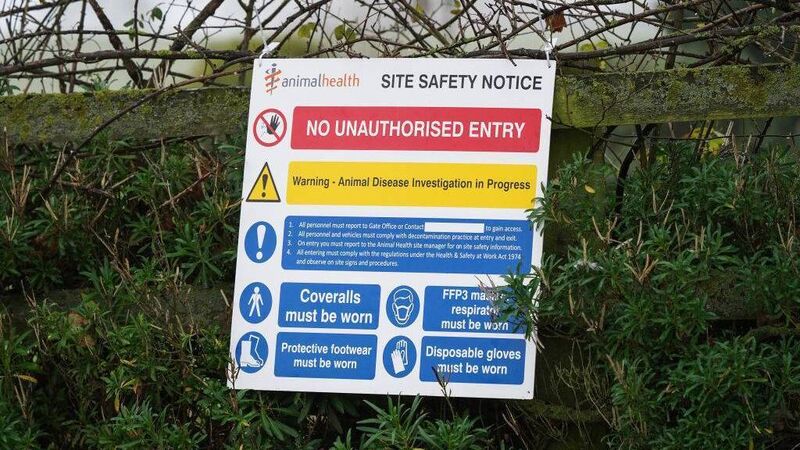Bird Flu control measures to be introduced across Ireland

A warning sign pictured outside a commercial turkey fattening farm in North Yorkshire where Avian influenza was confirmed last year. Picture: Ian Forsyth/Getty Images.
Stringent biosecurity measures for birds and poultry are set to come into effect across the island from Wednesday, November 17, in a bid to stop Avian influenza from spreading into Irish commercial poultry flocks.
The virus, which is known colloquially as 'bird flu', has the potential to wipe out whole flocks within 48 hours and circulates naturally in wild birds in continental Europe.










